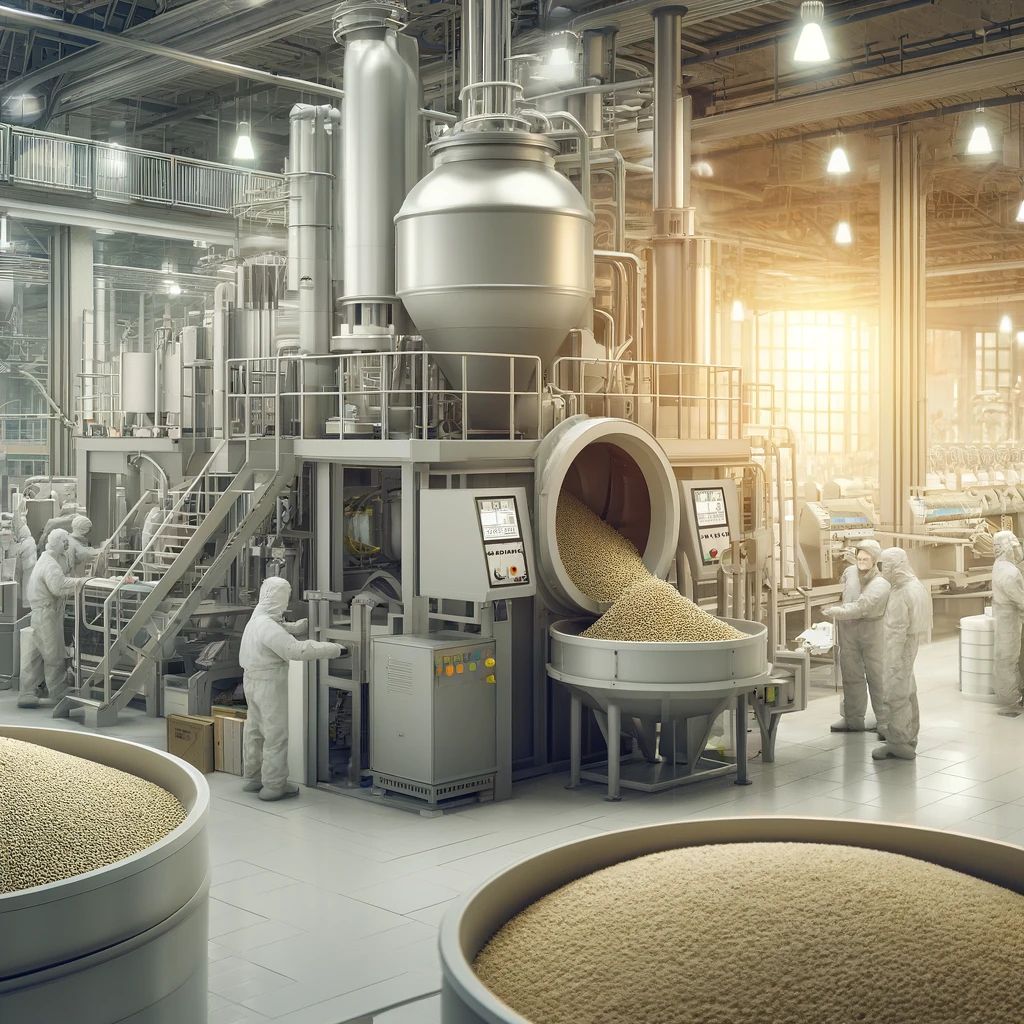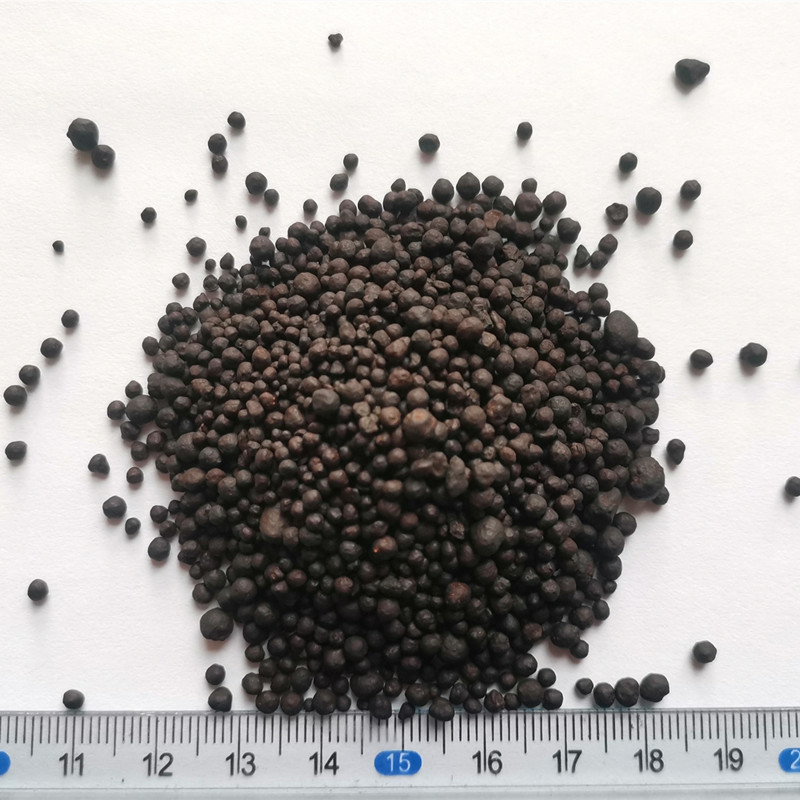Introduction: Organic Chicken Fertilizer Pellets: An Understanding
In the world of organic farming, chicken droppings are a sustainable and highly efficient form of fertilizer. These pellets are made through the collection of chicken droppings which are dried off and at times mixed with other organic matter to enrich them nutritionally. The mixture is then subjected to composting and pelletization to yield an easily handled, high in nutrients fertilizer.
The significance of organic fertilizers in contemporary sustainable agriculture cannot be overemphasized. As the global agricultural sector shifts towards greener practices, there has been a surge in demand for eco-friendly options such as Organic Chicken Fertilizer Pellets. They provide not only essential nutrients that are readily absorbed by plants but are also instrumental in maintaining ecological balance through the recycling of waste materials which would otherwise go on polluting environment.
Renowned agricultural scientist Dr Sarah Benton says, “The move towards organic fertilizers is symptomatic of broader change in agricultural practices towards sustainability ……..”. Organic chicken fertilizer pellets therefore play a great role in improving soil fertility while observing principles of organic farming.” This paradigm shift is important for future farming if it aims to minimize chemical inputs, improve soil health, and produce nutritious and safe food products.
Benefits of Using Organic Chicken Fertilizer Pellets for Soil Health
There are several advantages associated with the use of organic chicken manure as opposed to traditional fertilizers since they have higher nutrient content. These tiny balls contain nitrogen, phosphorus and potassium which are essential plant elements. In addition, they include different trace elements that participate actively in healthy plant growth.
One key advantage brought about by these natural chicken manure is their ability to enhance soil structure. Upon soils application these pellets incase more amount of humus into it thus make it become porous hence better structure. This means that more air can circulate around the roots allowing them to breathe well as opposed to water flowing more easily and faster. On the same note, it significantly increases its water holding capacity which enables it to retain moisture in the soil especially during dry spells.
According to Dr Jacob Turner, a soil health specialist, “The structure of soil underpins its overall health and productivity ..…”. Whenever organic chicken manure is added on top of the ground; it enriches it with nutrients and creates favorable atmosphere for plants’ roots to grow down and water and air to move freely. Besides promoting plant development, this also makes soils more resistant to erosion and degradation.
Furthermore, these pellets have slow releasing nutrients, meaning that their release is spread over a longer period reducing the chances of nutrient leaching as well as providing consistent supply of important elements required by plants. This controlled nutrient release system is particularly good for maintaining long-term soil fertility and supporting sustainable crop production patterns.
In summary therefore, organic Chicken Fertilizer Pellets are instrumental in improving soil structure, increasing nutrient availability, and retaining moisture content. These advantages are critical for sustainable farming practice leading to increased yields through healthier crops while minimizing environmental pollution.

Environmental Gains of Organic Chicken Fertilizer Pellets
Organic chicken fertilizer pellets have manifold environmental benefits that can contribute to the sustainability of farming practices while increasing agricultural productivity. One key ecological advantage of these pellets is their effectiveness in minimising chemical runoff from fields into water resources. Unlike synthetic fertilizers which easily infiltrate rivers and lakes leading to nutrient pollution and eutrophication, organic chicken fertilizer pellets slowly release nutrients that minimize run-off and potential water contamination.
Additionally, the use of organic chicken fertilizer pellets enhances biodiversity in agriculture. These organic pellets are vital as they improve soil health as well as reduce the need for various chemicals in order to make ecosystems more balanced. Healthier soils play host to a wide range of organisms including beneficial microbes and earthworms; these organisms are essential for nutrient cycling and maintaining soil structure.
Moreover, another important environmental benefit is regarding how these pellets facilitate waste management and recycling within poultry industry. Organic chicken fertilizer pellets are made from recycling chicken manure, a by-product of poultry farming otherwise there would be a pile up. By transforming this waste product into a valuable crop production resource through conversion processes, the practice aids in completing the nutrient cycle thereby reducing agricultural sector’s waste woes.
Environmental expert Dr. Helen Corbin says using organic chicken fertilizer pellets is advantageous both for agriculture and environmental conservation since it provides crops with top-drawer organic nutrients while enabling us manage poultry wastes better than before hence reducing our environmental impacts.
Ultimately, organic chicken fertilizer pellets present sustainable alternatives to synthetic fertilizers because they safeguard water quality, promote biodiversity, boost agriculture by-products recycling process among others. Thus these advantages underline what role sustainable measures such as switching to an organic method might play in addressing the problems faced by farmers today
Guidelines on the Application of Organic Pellets Derived from Chicken Manure
To maximize their effectiveness and ensure the health of crops and soils, it is important to properly apply organic chicken fertilizer pellets. Farmers and gardeners can have these benefits optimized while reducing any potential negative effects by following these guidelines.
Timing of Application: It is important to make sure that organic chicken fertilizer pellets are applied at the right time so as to synchronize nutrient availability with a plant’s growth requirements. For most crops, before planting or during early growth stages would be the best time to utilize this pellet form. As such, requisite nutrients will be available when plants are establishing roots and need plenty of energy for growth. In springtime, perennials may receive an early application to aid in initiating growth with increasing temperatures.
Dosage Recommendations: The amount of organic chicken fertilizer pellets required depends on several factors including type of crop, soil fertility and specific growth stage of the plant. Generally, for most field crops it is advisable to use about 200-300 pounds per acre. Before applying though it is crucial that one does a soil test to determine specific nutrient needs instead of over-fertilizing which can lead to nutrient runoff and soil degradation.
Method of Application: Organic chicken fertilizer pellets can either be spread directly into the soil using or mixed with topsoil. When it comes to home gardens, spreading them evenly around the base of plants before tilling lightly into the ground ensures roots have access to nutrients. Broadcast spreaders or special pellet applicators may also be employed in farming operations where a large area has been set aside for cultivating various products.
According Dr Mark Benson who works as an agricultural consultant “The integration process being carried out on organic chicken manure ought not just simply stem off any case nutrient loss via run off but instead this should help in enhancing uptake by roots”.
Safety Considerations: To avoid dust inhalation or skin contact resulting from manure-based products that may contain pathogens, always use gloves and dust masks when handling organic chicken fertilizer pellets. Therefore, proper personal protective equipment should be used during application to avoid health problems.

Comparing Organic Chicken Fertilizer Pellets to Other Organic Fertilizers
Organic chicken fertilizer pellets are often the preferred choice of many farmers and gardeners when looking for organic fertilization options. Nevertheless, weighing their reliance on other organic fertilizers can assist in making well-informed choices based on specific gardening or farming requirements.
Effectiveness: Organic chicken manure is widely appreciated for its balanced nutrient composition which includes adequate nitrogen, phosphorus and potassium contents. This makes it highly effective in promoting robust plant growth and healthy soil ecosystems compared to some other organic fertilizers like cow dung that tends to have low nutrients content. Moreover, the granules ensure slow release of nutrients in the soil which minimizes wastage through leaching.
Cost: Although generally more affordable than most artificial fertilizers, such as chemical based ones, organic chicken fertilizer pellets may sometimes be slightly more expensive than compost or cow dung among other alternatives. However, this can be countered by increased amount of minerals upon decomposition and prolonged time between regular applications hence fewer reapplications required.
Application Ease: One of the main advantages of organic chicken manure pellets over other types is their ease of application. In comparison with loose materials like compost or fresh manure they are easier to deal with as well as store more uniformly spread out. This simplifies work reducing on labor and time especially where large quantities are involved.
Dr Simon Gregory, a soil scientist notes “the user-friendly character of organic chicken fertilizer pellets combined with their nutrient rich nature often justifies a slight cost premium.” He further asserts that it is because they provide an enhanced package of concentrated nutrients together with organic matter benefits that make them suitable for intensive organic farming and gardening.
Scenarios of Advantage: Situations calling for accurate nutrient delivery such as vegetable gardens or high-value crop production will best suit chicken manure used specifically in powder form. Similarly, this type can come handy in poor quality soils where enrichment with organic material significantly improves the structure and fertility of land.
To sum up, compared to other organic fertilizers, organic chicken manure pellets stand out in terms of effectiveness, cost-effectiveness and ease of application. This makes them suited for a variety of agricultural and horticultural applications that encourage sustainable farming practices while delivering better outcomes.
Conclusion:
The exploration of organic chicken fertilizer pellets has exemplified their importance in the promotion of sustainable agriculture while improving soil fertility and crop yields. The agricultural sector is increasingly moving towards a more environmentally friendly and sustainable approach, which will make the use of these pellets highly crucial.
This makes them appealing to farmers and gardeners alike due to their rich nutrient content, eco-friendliness, and ease of handling. This further supports the global organic farming shift and limiting chemical interventions within our ecosystems. With more studies being carried out, coupled with increased knowledge about it, there is likelihood that people will transition into using organic chicken fertilizer pellets more frequently.
Projections for future research development and application pertaining to organic chicken fertilizer pellets are very promising. Therefore there is continuous research on how to increase its benefits as well as efficiency. For instance, there might be future developments leading to even better pellet formulations that are specific for different crops or advanced composting methods reducing odor as well as improving nutrient retention through pelleting.
Organic chicken manure pellets will play a major role in farming going forward. They offer practical solutions for soil fertility maintenance challenges alongside environmental preservation. As Dr Emily Carter, an expert in organic agricultural solutions says “Continued innovation and uptake of organic chicken fertilizer pellets is essential if we are going to sustainably meet our future food production needs”. In line with this pursuit, the wider agrarian community is actively adopting practices that not only guarantee good returns but protect our natural endowment for posterity’s sake.
Some references on organic chicken fertilizer pellets:
- Green, Michael. “Organic Waste Recycling in Poultry Industries.” Environmental Protection Agency, 2022. A government report on the recycling practices within poultry industries and their environmental impacts.
- Davis, Angela. “Long-term Benefits of Organic Fertilizers for Soil Fertility.” Soil Health and Fertility Journal, Vol. 29, No. 2, 2023. This publication provides insights into the long-term benefits of using organic fertilizers like chicken pellets in maintaining soil fertility.
- Clark, Emily and Thompson, Robert. “Guide to Using Chicken Manure Pellets in Small-Scale Farming.” University of Agricultural Sciences, 2021. A practical guide from an academic institution on the effective use of chicken manure pellets in small-scale farming setups.







